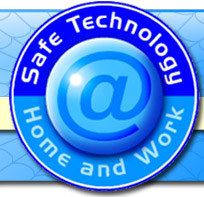
programme framework
The educational programme has been made available to all state and private Secondary schools. It features educational resource material, specifically commissioned for this project. It may be delivered in any manner deemed effective by each institution. For example, through the PSD or Citizenship programmes, assemblies or tutorial sessions. It is targeted at secondary students (S1-S3).
aims
To educate young people regarding the negative externalities associated with new technology, and thereby to provide guidance and protection for some of the more vulnerable members of our community.
context
This programme runs alongside similar information programmes aimed at parents and other adults. This is delivered though the media and the churches. Outside agencies are also encouraged to support the campaign though the dissemination of material.
content
The programme comprises;
- A short film, made by young people with Café Society UK, distributed on DVD to all schools
- Talks and presentations by representatives from outside agencies
- Photocopiable resource material designed to annotate some of the key issues relating to this theme, e.g. worksheets, debates and discussion framework and guidelines.
- Teachers' notes on all of the above, as well as lesson plans.
the message
The project materials explores four main themes:
1. Exploitation and misinformation;
Students are encouraged to consider the following;- That the Internet is a collection of uncontrolled and unregulated components. That some Internet content is unsafe, misleading and illegal, for example;
- Pornography
- Racist content
- Terrorist propaganda
- Dangerous content, e.g. instructions on bomb making etc…
- Some chat rooms, particularly those where sexual predators may operate
- Gambling sites, particularly those operating outside regulatory authorities
- On a lighter note the issues of plagiarism can be explored, particularly with regard to the unreliability of ‘academic’ material found on the www.
- That e-mail correspondence with an unknown third party can be hazardous
- That unregulated Internet sites can operate fraudulent financial schemes
- That ‘user-share’ sites such as face book and High 5 can breach privacy rules. Users can find their images and personal data misused and misrepresented
2. Legislation
Students are presented with the facts concerning current legislation both in Seychelles and overseas. They are advised regarding possible future legislation and how this might affect them and their families.
3. In the work place
Students are given information regarding Safe Technology practice in the work place, so that they can be mindful of their responsibilities in this respect when on work experience or when they have completed their education and are at work. To this end students are encouraged to consider the following;
- Policies and legislation, actual and pending, which regulate how employees use technology whilst at work.
- The fact that a worker abusing technology whilst at work is liable to be dismissed and prosecuted.
- The range of potential misdemeanours at the place of work, including;
The use of technology to carry or download any indecent, obscene, offensive or defamatory material.
- Breach of copyright (e.g.- by copying film or music files)
- Breach of confidentially and privacy of an individual.
- The ‘hacking’ of systems to obtain data and information in an unauthorized manner.
- The breaking of any law.
4. In the school
Students are encouraged to see the school in the same light as the potential place of work. All of the topics considered within the employment context are transferable to the school. Additionally students are informed of their school’s policy and rules regarding the use of technology.(Example attached for consideration).








